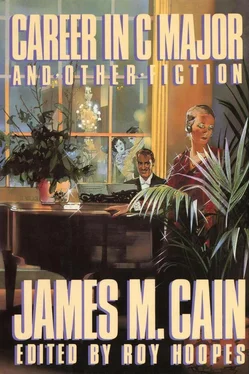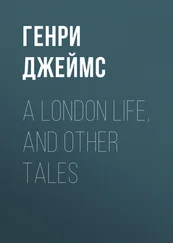“Why... right here.”
“And why here? What’s the idea of hiding out in this goddam dump? I’ve been looking for you all night, and it was just by accident that I found you. Just by accident.”
Doris cut in, meeker than I ever heard her. “Why... one of the children was threatened with measles, and Leonard came down here so he wouldn’t be quarantined.”
“Couldn’t he let somebody know?”
“He... it was only to be for a few days.”
That seemed to cool him off a little, and I tried to be friendly. “When did you get to town? I thought you were up there milking cows.”
“Never mind when I got to town, and never mind the cows. And cut the comedy. Get this.”
“I’m listening.”
“You’ve got just forty minutes to make a train, and you pay attention to what I’m telling you.”
“Shoot.”
“Alabama. You’ve heard of it?”
“Sounds familiar.”
“There’s a big government-aid railroad bridge going up down there, and we build bridges, this here Craig-Borland Company that we’ve got, even if you seem to have forgotten it. You get down there, and you get that contract.”
“Where is this bridge?”
“I got no time for that. It’s all in here, in this briefcase, the whole thing, and you can read it going down. Here’s your tickets for the two of you, and remember, you got thirty-nine minutes. When you get there, I’ll wire you our bid. I’ll put the whole thing on the wire, it’s being figured up now. The main thing now is — get there.”
“O. K. Chief.”
He turned to Doris. “And you—”
“Yes sir.”
“Listen to what I’m telling you. This is a bunch of well-bo’n South’ners dat dey grandaddy had slaves befo’ de wa’, lo’s’n lo’s o’ slaves, and they’ve got to be impressed. You hear that? You take a whole floor in that hotel, and you roll out the liquor, and you step on it. You do all the things that your bum, sassiety, high-toned, good-for-nothing upbringing has taught you how to do, and then you do it twice.”
“Booh. I know you.”
“For once in your life, maybe you can be of some use.”
“Just once?”
“If you don’t put it across, you needn’t come back.”
“We’ll put it across.”
So we put it across. They’ve got a bird in my business too, that rides the trusses while the scows are taking them out, and flies around and flaps its wings and crows whenever one of them falls in the river. But his wings didn’t get much exercise on that job, and neither did his voice. It was my trade. The river got pretty tough once or twice, and we had some close squeaks. But not one of those trusses took a dive.
But I’m ahead of my story. Craig had a paper stuck in his pocket, and after he had laid the law down he began to get sore again and remembered it. He tapped it with his finger. “And you keep in touch with me. If it hadn’t been for this, seeing your name in this paper just by accident, I wouldn’t have known where to look for you.”
He took it out and opened it, and pointed to a great big picture of me in the whiskers, and wig and cap, and bells, on the theatrical page. “Is that you?”
Doris let out a cackle that made everybody in the lobby look up. It was just a silvery peal that came from the heart, and did you good to hear it. She wasn’t laughing at me. She was laughing at Craig, and when I looked at him I had to laugh too. I had to laugh so hard I folded into one of the lobby chairs, and so did she. The look on that old hard-rock man’s face, holding up that picture, was the funniest thing I ever saw in my life, or ever hope to see.
I scrambled up and threw my stuff into a bag, and was so excited over getting back in harness that I kept singing all the time and didn’t even feel bad about it, and down in the lobby Doris called the house and we made the train. We had the drawing room, but I was out of cigarettes, and I went in the club car to get some. I would have sent the porter, but he was still making up berths, and I didn’t want to bother him. When I got back she was already tucked in, in the upper berth, and all you could see was a tousle of red hair. I undressed, got into the lower. I waited, and she didn’t say anything. I turned out my light, and still nothing from her. All you could hear was the wheels, going clickety click: They kind of beat time, and I started to sing the opening of a duet:
Là ci darem la mano!
Là mi dirai di sì
Vedi non è lontano
Partiam ben mio da qui
It was time for her to come in, and I waited. Then: “Did you sing that with her?”
“No, I never did.”
“Are you sure?”
“They were going to have me do Don Giovanni. This last outfit, I mean. So I got the score, and found it in there. I had heard you humming it around, so — I learned it.”
She came tumbling down the ladder, all floppy in a suit of my pajamas. She slipped in beside me, put her arms around me. “Leonard.”
“Yes?”
“I’m glad you flopped. Because I flopped, and — if you could do this one thing I’ve always wanted to do, and can’t — I couldn’t stand it. And—”
“Go on. And what?”
“It’ll be all mine, now, this that you have in your throat. That’s why I came back there. Leonard, when you sang that day it almost killed me. I think you wanted it to. Oh, I’ve been a terrible wife to you, Leonard. I’m jealous, and spiteful, and mean and nothing will ever change me. But when I get too terrible, just sing to me, and I’ll be your slave. I’ll come crawling to you, just the way you came crawling to them, in the second act tonight. That woman has given us something that was never there before, and I’m going to thank her, and win her, and make her my friend. Oh, I can, I don’t care what has gone before, I can win anybody when I really want them... Now I’ll say it. Something you’ve never heard me say before. I’ve fallen in love. With my own husband.”
I held her tight. She put her mouth against my throat, and began kissing it. “Now sing, and I’ll sing.”
Là ci darem la mano!
Là mi dirai di sì
Vedi non è lontano
Partiam ben mio da qui.
Vorrei e non vorrei
Mi trema un poco il cor
Felice è ver sarei
Ma può burlarmi ancor...
We sang it together, and it was terrible, and it was the sweetest duet I ever heard. That’s all.
Introduction and notes Copyright © 1986 by Roy Hoopes. Copyright 1923 by A. S. Abell Co. Copyright 1927 by Press Pub. Co. Copyright 1925 by The American Mercury, Inc. Copyright renewed 1953 by The American Mercury, Inc. Copyright 1927 by The American Mercury, Inc. Copyright renewed 1955 by James M. Cain. Copyright 1929 by The American Mercury, Inc. Copyright renewed 1956 by American Mercury Magazine, Inc. Copyright 1930 by J. M. Cain. Copyright renewed 1957 by James M. Cain. Copyright 1933 by The Conde Nast Publications, Inc. Copyright renewed 1960 by Conde Nast Publications, Inc. Copyright 1934, 1936 by McCall Corp. Copyright renewed 1962 by James M. Cain. Copyright 1937 by McFadden Publications. Copyright renewed 1964 by James M. Cain. Copyright © 1961 by Esquire, Inc. Copyright 1938 by James M. Cain. Copyright renewed 1965 by James M. Cain.
For the series of articles Cain did for Mencken and The Mercury in the 1920s, see 60 Years of Journalism by James M. Cain, which I edited for the Popular Press (1985).
“Pastorale” is included in The Baby in the Icebox and Other Short Fiction by James M. Cain, Holt, Rinehart and Winston, 1981; Penguin, 1984.












